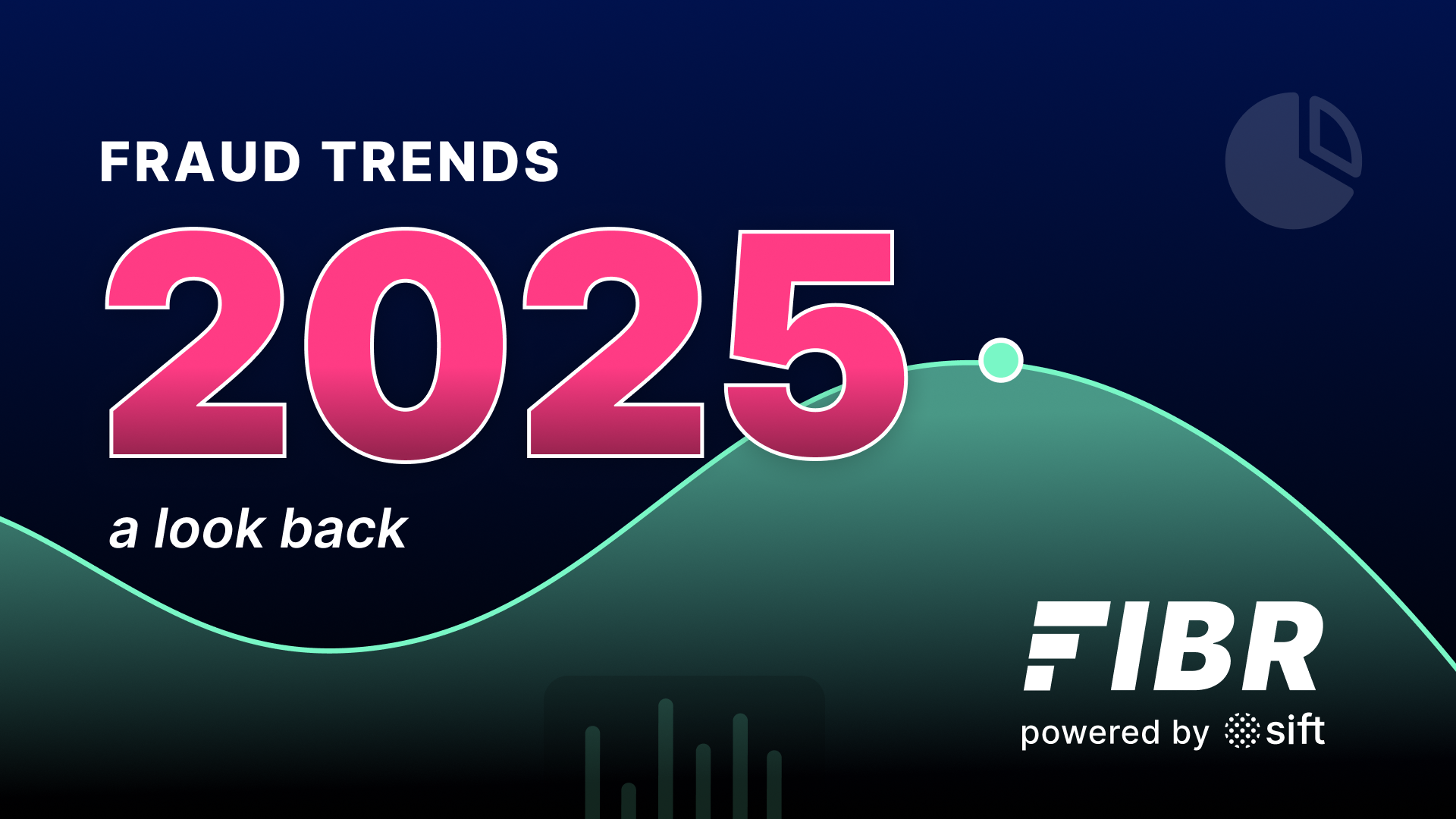In 2023, the global economy witnessed 238 million chargebacks, with projections indicating that this will surge to 337 million by 2026. These disputes inflict substantial damage on businesses, resulting in annual losses of hundreds of billions of dollars through fees and damaged customer loyalty. Companies unable to curb rising chargeback rates face significant consequences, including potential loss of digital payment processing capabilities.
To effectively combat this growing challenge, it’s necessary to first recognize the root causes behind chargebacks. This article explores the primary reasons consumers dispute a charge and provides actionable strategies to mitigate these issues, ultimately reducing chargebacks and boosting customer satisfaction.
What is a Chargeback?
A chargeback occurs when a bank or payment processor reverses a transaction, refunding a customer following a dispute over a charge. The process can be costly, with chargeback fees can cost merchants anywhere from $20 to $100 per chargeback.
These financial safeguards were originally introduced in 1974 to protect credit card holders. Today, the Electronic Funds Transfer Act (EFTA) empowers consumers to contest inaccuracies in their financial statements, protecting consumers from risks associated with online transactions.
The average rate is 5.6 chargebacks out of every 1,000 transactions. Exceeding this benchmark may signal you have some underlying issues, such as ineffective fraud prevention controls.
How Can Chargebacks Impact Your Business?
The damage from chargebacks extends beyond mere financial implications and can include a tarnished reputation, disrupted operations, and unwanted scrutiny from regulators and auditors.
Here are the key ways chargebacks can affect your organization:
- Financial Losses: Beyond the immediate reversal of funds, businesses face additional chargeback fees, eroding profit margins.
- Reputational Damage: A high volume of chargebacks can lead to negative reviews and erode customer trust, potentially deterring future clients.
- Operational Strain: Managing chargebacks demands substantial administrative resources, diverting attention from core business activities and impacting overall efficiency.
- Increased Scrutiny: Payment processors may impose closer monitoring and potential penalties on businesses with high chargeback rates.
- Merchant Account Jeopardy: Persistent chargeback issues can negatively affect your standing with financial institutions, potentially resulting in higher fees or even account termination.
- Customer Attrition: Unresolved disputes often lead to customer dissatisfaction, reducing repeat business and lifetime value.
Understanding these impacts is crucial for developing effective strategies to mitigate chargebacks and protect your business’s long-term success.
Transaction Disputes vs. Chargebacks
While closely related, transaction disputes and chargebacks represent distinct mechanisms for addressing customer complaints about charges. Understanding the difference is crucial for implementing the most appropriate prevention, resolution, and dispute management strategies.
Transaction disputes occur when a customer directly contacts the merchant with a complaint about a charge. This process typically involves a dialogue between the merchant and customer, aiming to reach a mutually satisfactory resolution. The direct nature of this interaction typically leads to quicker resolutions and helps maintain positive customer relationships.
In contrast, chargebacks involve the consumer bypassing the merchant, instead contacting their bank or credit card issuer to dispute a charge. In these cases, the payment processor initially sides with the customer, placing the burden of proof on the merchant to contest the claim. This process is generally more formal and can be more time-consuming and costly for the merchant.
Merchants typically prefer to deal with transaction disputes over chargebacks as they offer:
- Less severe financial impact
- Faster resolution times
- Greater control over the outcome
- Opportunity to maintain consumer relationships
By encouraging customers to reach out directly with concerns, businesses can often resolve issues before they escalate to chargebacks, preserving both revenue and customer loyalty.
Five Reasons to Dispute a Charge
Customers may initiate chargebacks in various scenarios, each requiring a different mitigation strategy. Being aware of these motivations allows you to address the root cause and reduce dispute rates. Here are consumers’ five main reasons to dispute a charge:
- Fraudulent Transactions: One of the most common reasons for a chargeback is fraud. A customer might notice charges on their credit card statement for purchases they did not authorize. Upon investigation, they discover their credit card information was stolen and contact their bank to file chargebacks.
- Product Not Received: Delivery issues frequently lead to disputes. Consider a scenario where a customer orders shoes with an expected one-week delivery time. When three weeks pass without the product arriving and the retailer is unresponsive, the frustrated customer may resort to a chargeback to recoup their money.
- Product Not as Described: Discrepancies between product descriptions and reality can prompt chargebacks. This encompasses both physical damage and misrepresented features. For example, if a customer purchases a smartphone advertised with 128 GB of storage but receives a 64 GB model lacking promised features, they may dispute the charge.
- Recurring Charges: The rise of subscription-based services has introduced a new chargeback trigger: unexpected recurring charges. A customer might subscribe to a streaming service, intend to cancel after one month, but find charges continuing for several months. They may then dispute these renewals with their bank.
- Technical Errors: Payment processing glitches can lead to erroneous charges. Duplicate transactions or incorrect amounts often result in disputes. When customers notice these discrepancies, they frequently initiate chargebacks to rectify the error and recover their funds.
How Do You Prevent Chargeback Disputes?
Preventing chargeback disputes requires taking proactive measures across various areas of your business, from strengthening your fraud prevention measures to introducing customer service enhancements.
Here are the key strategies you can start putting into effect immediately to reduce chargebacks:
Enhance Fraud Detection
Fraud is one of the most common reasons for chargebacks, so it’s crucial to implement advanced fraud detection tools to identify and block fraudulent transactions before they occur. Reducing fraudulent transactions protects both you and your customers from fraudsters and ensures that your customers feel safe doing business with you online.
Improve Customer Communication
Maintain clear, timely communication with customers regarding orders and billing. Providing accessible channels for inquiries encourages customers to contact you directly with issues rather than resorting to their bank.
Optimize Product Listings
Ensure product descriptions are accurate and detailed, accompanied by high-quality images. This clarity sets realistic expectations and minimizes misunderstandings that could lead to chargebacks.
Monitor and Resolve Technical Issues
Regularly audit and update your platform to prevent technical errors. Swift resolution of payment processing glitches can significantly reduce chargebacks and bolster customer trust.
Provide Exceptional Customer Service
Train your support team to handle inquiries and complaints efficiently and professionally. Prompt, courteous responses can often resolve issues before they escalate to chargebacks.
Simplify Billing Processes
Maintain transparent, error-free billing practices. Avoid hidden fees and surprise charges. Clear, accurate billing statements help customers understand their charges, reducing dispute likelihood. Regularly review your billing practices to identify and correct potential sources of confusion or error.
Offer Easy Returns and Refunds
Implement a straightforward, hassle-free return and refund process. Clear policies and efficient procedures give customers confidence in resolving purchase issues without resorting to chargebacks.
Implement Clear Subscription Policies
For subscription-based services, clearly communicate terms and provide simple opt-out or adjustment options. Transparency in subscription management fosters better customer relationships and reduces unexpected transaction disputes.
Doxo, an all-in-one bill payment platform, faced an increasing challenge of chargeback fraud that posed risks to both their customers and their organization. They turned to Sift’s AI-powered fraud decisioning platform to stem the tide of fraudulent activity. With Sift, Doxo was able to identify fraud and stop it at the source, achieving a 10x return on their investment and an 80% chargeback win rate.
Why Sift is Your Best Solution for Preventing Chargebacks
While chargebacks may initially seem minor, they can rapidly escalate into a significant liability to your business. Effective prevention requires a dual approach: Optimizing customer service and implementing robust technology solutions, particularly in fraud prevention.
With Sift, you get comprehensive protection against fraud and a streamlined method for dispute resolution.
Key features include:
- AI-Driven Fraud Detection: Sift’s platform uses AI to detect and prevent real-time fraudulent transactions.
- Enhanced Customer Insights: Gain deeper insights into customer behavior and fraud patterns to help make informed decisions and improve the customer experience.
- Seamless Integration: Integrate Sift’s solutions with your existing systems for a smooth, efficient process.
- Real-Time Monitoring: Monitor transactions in real time to quickly identify and address potential issues.
- Scalable Solutions: Sift’s solutions scale with your business, providing robust protection as you grow.
Sift allows you to create a secure environment and enhance customer trust and loyalty, staving off chargebacks and turning risk into revenue.
If you want to learn more about how you can prevent online fraud and grow your business fearlessly, explore how Sift redefines risk operations.







